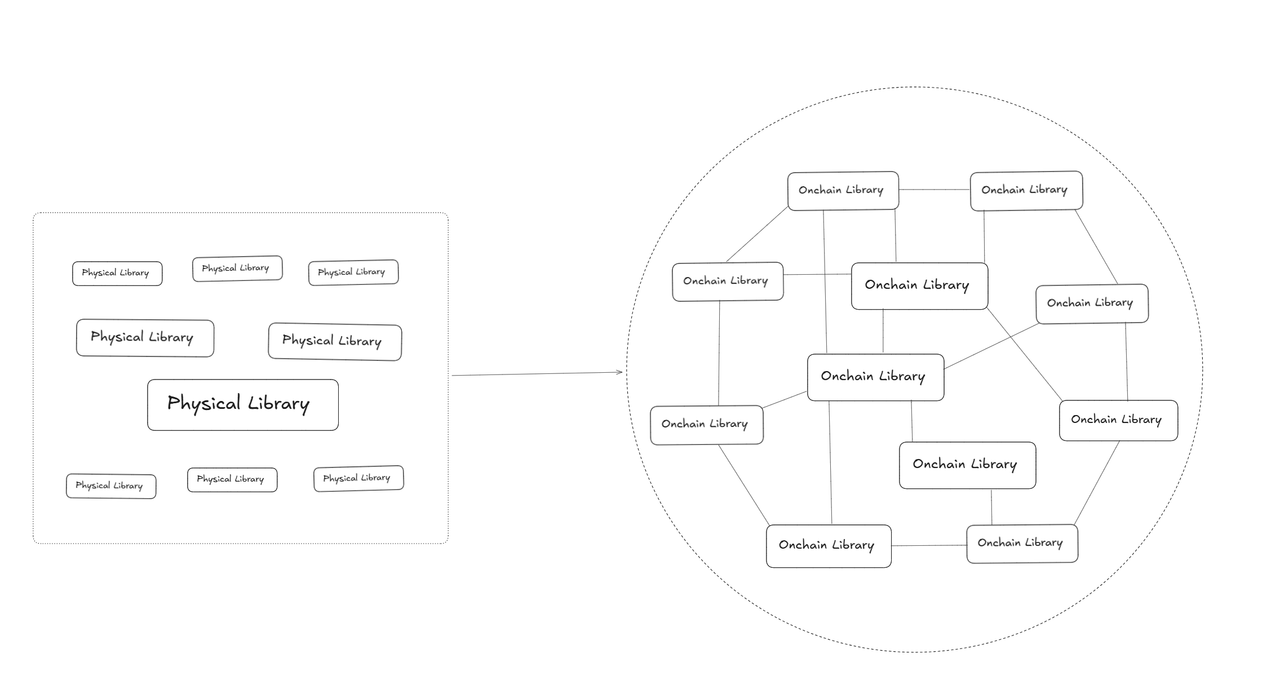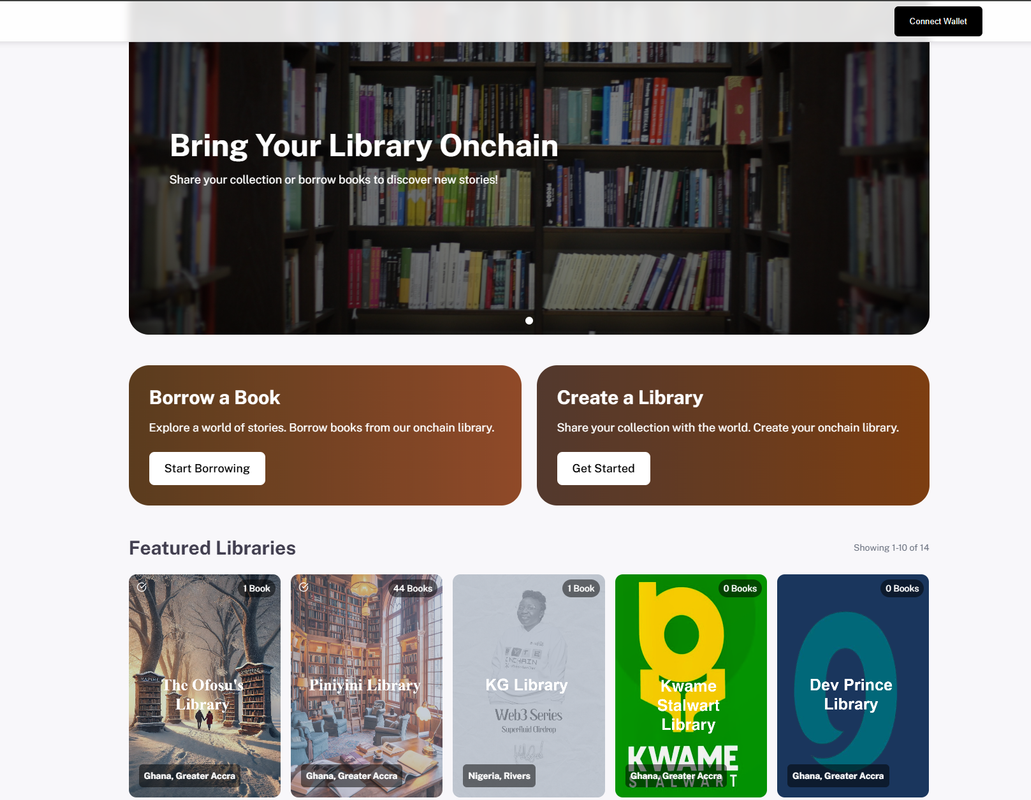Overview
Library Protocol is an open-source book-sharing application that enables users to bring their physical libraries on-chain, lend books, and borrow books in a borderless way. It serves as a network connecting book and library owners with book lovers, readers, and curious minds.
For centuries, books have been the cornerstone of knowledge and intellectual progress. Libraries have preserved history, empowered thinkers, and shaped civilizations. But access to books remains limited by geography, availability, and ownership.
What if anyone, anywhere, could borrow books seamlessly—without borders?
With Library Protocol, you can: 📚 Put your personal or institutional library onchain 🔗 Lend books securely using smart contracts 📖 Borrow books from anywhere without relying on centralized platforms 🛡 Leverage a reputation-based system for responsible borrowing
The goal? To unlock knowledge for everyone, everywhere!
Why Do We Need Onchain Libraries? In today’s world, access to books is restricted by several barriers: ❌ Physical limitations – Libraries and personal collections are confined by geography. ❌ High costs – Many valuable books remain unaffordable for students, researchers, and knowledge seekers. ❌ Trust issues – Traditional lending requires manual agreements with no enforcement mechanism. ❌ Lack of incentives – Book owners have little reason to share their collections openly.
Library Protocol solves these issues by introducing a decentralized, global book-sharing network where ownership, lending, and borrowing are managed transparently on-chain.
How Library Protocol Works Library Protocol is designed to be open, transparent, and accessible. Here's how it works: 📖 1. Create Your Onchain Library
- Connect your wallet and create your own onchain library.
- Register books you own (metadata like Title, Author, ISBN, Cover Image stored on IPFS).
- Each book is represented as an NFT for tracking purposes.
📚 2. Lend Books Securely
- List books from your library for lending.
- Set lending conditions (with or without collateral).
- Borrowers request books, and a smart contract handles agreements and collateral.
🔗 3. Borrow Books from the Network
- Browse available books across different libraries.
- Request to borrow, deposit collateral if required.
- Return books on time to maintain a strong reputation score.
🛡 4. Trust & Reputation System
- Every borrower and lender has an onchain reputation score.
- Timely returns improve reputation, unlocking better lending terms.
Built for Readers, Libraries, and the Future of Knowledge
Library Protocol is built for: 📖 Readers & Learners – Anyone seeking knowledge, from casual readers to researchers. 📚 Book Enthusiasts – Those who own physical books and want to share them. 🏛 Libraries & Archives – Institutions aiming to digitize collections and reach a global audience in novel ways. 👥 Communities & Educators – Groups looking to build decentralized knowledge-sharing hubs. By bridging the physical and digital book world, Library Protocol creates a borderless knowledge ecosystem.
The future of libraries is on-chain. Library Protocol transforms your personal bookshelf into a gateway of global wisdom—a decentralized network that unites curious minds and delivers books to communities, you or anyone, anywhere!
Library Protocol History
-
accepted into GG23 OSS - dApps and Apps 3 weeks ago.



